
Dentistry for Infants – Duncanville, TX
Putting Little Smiles on a Healthy Path
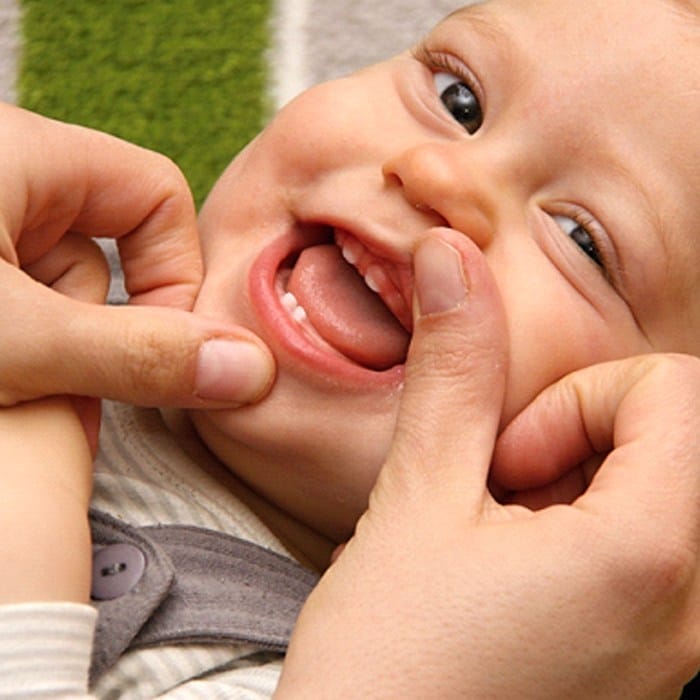
At Barefield Pediatric Dentistry, our team of dental professionals thrives on providing compassionate care for our youngest patients. Offering dentistry for infants in Duncanville, we can put your little one’s gummy smile on the right path from an early age. From the moment that first tooth erupts, we are here to help you set your child up for a lifetime of optimal oral health. Providing a gentle touch for your child, we will monitor the growth and development of their smile while offering valuable patient education for you to use at home. We invite you to contact us with any additional questions or to set up your child’s first appointment!
Oral Health Risk Assessment

Your child’s first appointment with us should be scheduled when their first tooth erupts or once they reach one year of age. During this visit, we will perform a quick and gentle exam to make sure everything is growing as it should, also making sure to wipe away any germs or bacteria that have accumulated on their tooth and gums. We will also discuss how to keep your child’s oral health in optimal shape at home. If your child’s first tooth has yet to erupt, it is best to clean their mouth after eating with a damp washcloth. If they already have one or two teeth, you can use a small, soft-bristled toothbrush and a smear (the size of a grain of rice) of toothpaste to clean them.
Our oral health risk assessment also includes tips on how to prevent tooth decay, one of which is to avoid giving your baby a bottle filled with formula or juice when going to bed, as this can cause early decay and cavities to develop.
Teething
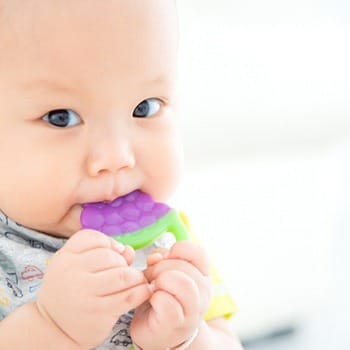
Teething is one of the most difficult stages to go through as a baby and an adult! Not only do you hate seeing your child in pain, but the constant crying can make you wonder “What am I doing wrong?” While this is a normal part of the growing process for an infant, it can be uncomfortable as their teeth begin to erupt through the gum line. Our team is here to help by providing advice and tips on how to help your child. From gently massaging their gums with your finger to offering them a clean teething ring to chew on, these can have your baby crying less and you breathing a sigh of relief. No matter if it is your child’s first or tenth tooth to erupt, we are here to offer additional tips and tricks for teething.
Non-Nutritive Habits

Thumb-sucking and pacifier use are common among infants but if continually practiced over time, they can cause a problem for your little one’s smile. These non-nutritive habits can lead to gapped teeth or problems with their bite. Although considered to be a “comfort mechanism” for your child, trying to break this habit as they grow older can become extremely difficult. To curb this potential challenge, we will work to identify ways in which you can help your child forgo these habits without causing additional distress.
Learn More About Thumb Sucking
Lip & Tongue Tie
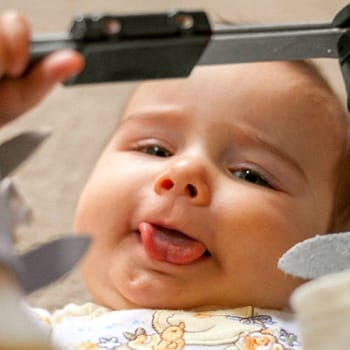
Wondering why you have difficulty nursing? Worried because your child is not gaining the necessary weight that they should? It could be because of a lip or tongue tie. These common oral developments are soft bands of tissue that are short and often restrict movement. As a result, your baby may have a harder time nursing. If untreated, these same bands can cause speech difficulties and even orthodontic problems. Fortunately, your pediatric dentist in Duncanville can perform a frenectomy to release the tissue and allow for a full range of motion. Not only is the procedure practically painless, but it is also completed in just minutes.
Fluoride Treatment
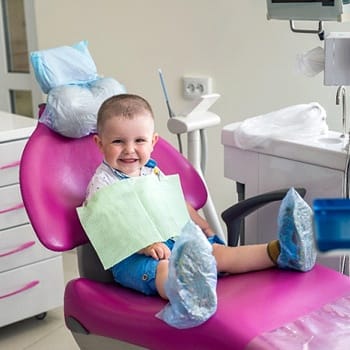
Young teeth are prone to cavities, which is why we offer silver diamine fluoride treatments. With your approval, we can apply a cavity-fighting substance to their teeth that will combat tooth decay and strengthen their tooth enamel. Even if your little one has already developed a cavity, this combination of fluoride and silver will stop it in its tracks. The best part of our fluoride treatments is that they require no needles or drills. Plus, they can be completed during a regular dental checkup and cleaning, so there’s no need for a separate appointment!
Learn More About Fluoride Treatment
Infant Dentistry FAQs
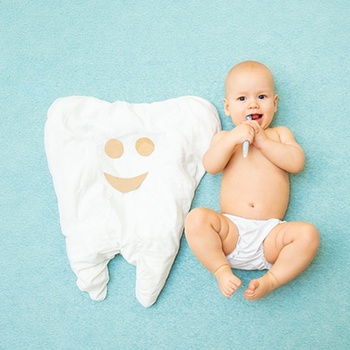
Are you searching for a pediatric practice that offers infant dentistry? Do you have a multitude of questions to ask a licensed professional about your baby’s oral health? Do you feel as if you have no idea where to start when it comes to keeping your child’s mouth clean? Not to worry! These questions and concerns are completely normal, which is why Dr. Donna Barefield has devoted her time to compiling some of the most frequently asked questions about infant dentistry for you to review. We know as a parent you may feel a bit overwhelmed by what is necessary to take care of your little one’s teeth. Spend a few minutes reviewing the following information. Should you have additional questions along the way, please don’t hesitate to reach out to us.
How can I prepare my child for their first visit?
As an infant, your little one will likely be more fascinated by the sights and sounds of the dental office; however, they do easily pick up on any anxious feelings you might have, which is why it’s important that you remain calm. Talk to your baby about how exciting it is to see the pediatric dentist and maintain that positive, upbeat attitude. This will give your child a sense of comfort and excitement about visiting our office and potentially curb any fears that could develop in the future.
Should I be cleaning my child’s mouth before their first tooth erupts?
Yes! Long before that first precious tooth makes its appearance, the best thing you can do for your child’s mouth is to keep it clean. This means using a clean, damp washcloth and gently moving it along their gums after feeding. This will help to keep their gums healthy and free of any leftover residue.
When will their first tooth erupt?
Although every child is different, the typical timeframe for the first tooth to erupt is between six and nine months of age. This will likely not be a surprise, as your child will most likely start the teething process, which means lots of drooling, possible crying, and less sleep for both you and your baby. Fortunately, our team can offer advice and tips on how to move through the teething process and provide solutions to help minimize discomfort for your child.
Is it normal for my baby’s teeth to be spaced apart?
It is not uncommon for your child’s teeth to emerge and be spaced apart from other teeth. Over time, as your child grows and more teeth begin to fill their mouth, these gaps will lessen, and you will begin to see a “normal” smile. However, should gaps remain as they develop, it may be caused by a lip-tie, bite issue, or another potential problem. This is why it is best if you bring your child in regularly for checkups and cleanings, as we will be able to monitor the situation and determine if proper treatment is necessary.
Why are baby teeth so important if they just fall out anyway?
You’re right, baby teeth are not permanent, and they will fall out eventually; however, these primary teeth play a larger role in how permanent teeth emerge. Serving as placeholders for your child’s adult teeth, these small and mighty pearly whites need to stay in place as long as possible and fall out on their own. Should your child lose a tooth too early, this can cause problems for the adult tooth when it tries to erupt. How? If decay or damage causes a baby tooth to fall out, the healthy, nearby teeth may try to shift and close up the space. This can lead to crooked teeth and the possible need for orthodontics.
Making sure their teeth are as healthy as possible and remain in place until it’s time to hand them over to the Tooth Fairy is important, so if a problem occurs, make sure you let us know right away, so Dr. Barefield can administer the appropriate method of treatment.